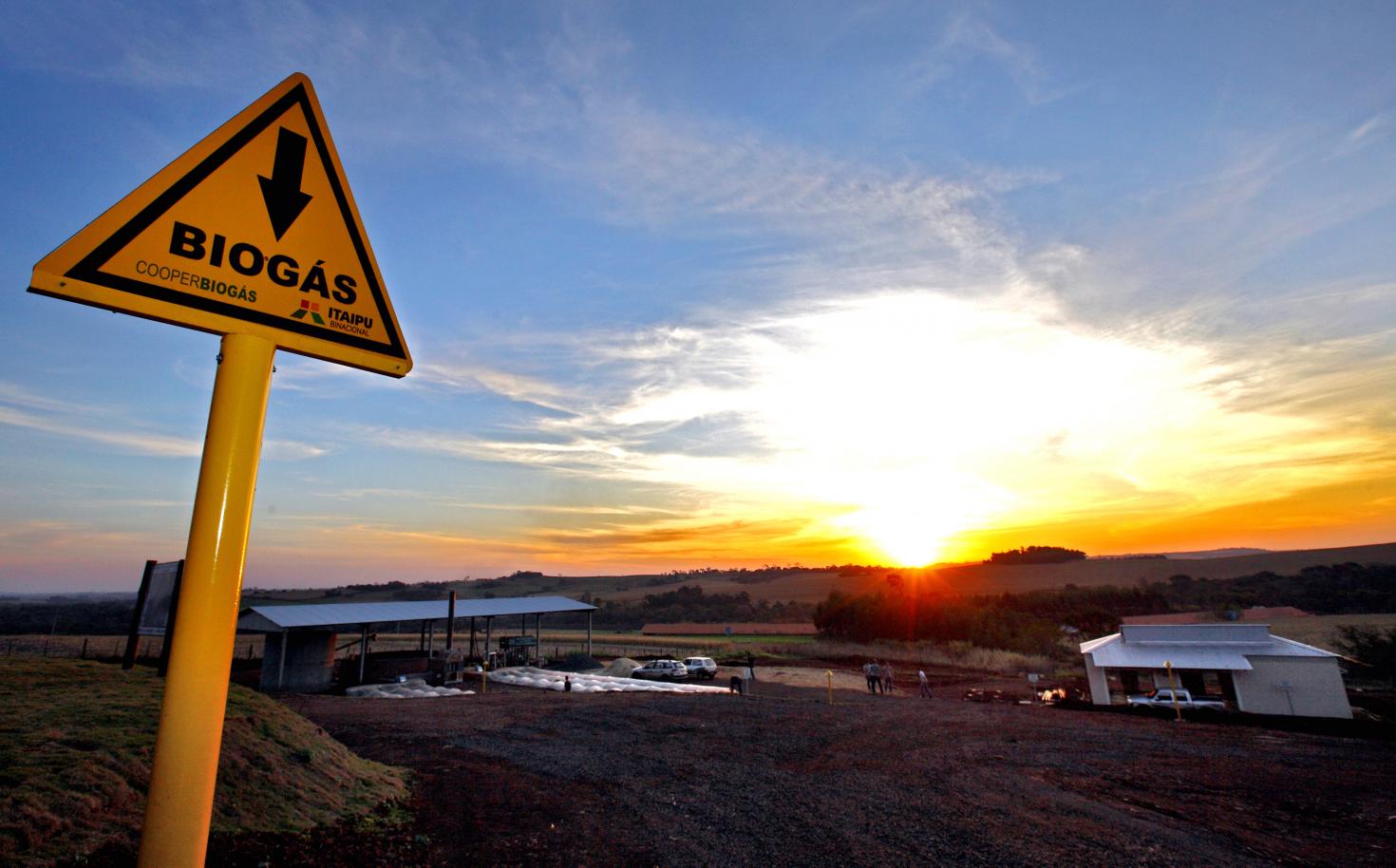Brazilian case shows that geographic planning, through hydro-information systems, allows for integrated planning and efficient use of water, energy, and food resources.
San Jose, 17 April 2017 (IICA). By 2035, it is estimated that energy consumption will increase by 35%, resulting in an increase of 85% in water consumption. Rafael Gonzalez, Technological Development Director of the International Center on Renewable Energy – Biogas (CIBiogás), underscored these realties during the inauguration of the technical forum cycle entitled “Sustainable management of agricultural and urban organic waste through the technological innovation of the biodigestor”.

The aim of this event, the first of seven to be held, was to promote the different benefits of using biodigestor technology for food production, and focused on “the link between water, energy, food, soil, and society”.
The initiative, organized by the Inter-American Institute for Cooperation on Agriculture (IICA) and the Network for Biodigesters in Latin America and the Caribbean (RedBioLAC), consists of holding seven technical, virtual, and free forums, which will be held every seven weeks starting on March 22 and ending on December 8, 2017.
During the inaugural forum, the case of the agro-energy condominiums was presented. The initiative was implemented in Ajuricaba and Entre Rios do Oeste, Copel in Brazil. The amount of 600 thousand dollars was invested in it and involved 33 small-scale producers in Ajuricaba who use bio-digestors and provide biogas to the system.
The agro-energy condominium has a 27 km biogas collection network. It supplies 400 m3 of biogas/day to a micro power plant, and in turn provides 560 kwh/day of electricity that has been produced by the waste (excreta and liquid manure from meat production) from the animals in the area.
Each one of these small-scale farmers has a biogas stove to cook food that is later sold, generating more income. The waste produced by the biodigestor is used to fertilize grains and for fodder in the area, in keeping with the use of primers and the recommendations for use that the project offers.
Gonzalez emphasized the importance of clean agricultural production, especially in meat and dairy production, due to the potential for contamination of watersheds, when taking into consideration that water for human consumption and increasing energy demands are complex issues worldwide.
Additionally, Gonzalez highlighted the biodigestor as a technology that contributes to curbing the pollution caused by this industry, while at the same time, generating a versatile energy input that can be used to produce electricity, or the direct use of biogas in the production processes that require heat energy.
“IICA’s guiding approach has been in knowledge management and the creation of agricultural capacities. It takes into consideration the interdependence between water, soil, food, and energy in both the integrated and sustainable management of natural resources, and in agricultural resilience in the Americas”, stated Orlando Vega, an IICA renewable energy specialist.
IICA has identified soil, water, energy, and biodiversity as the cornerstones of agricultural production. These resources provide a key recommendation to accomplish productive, sustainable, and inclusive agriculture through the integrated management of natural resources, and without increasing the impact of agriculture on the environment and biodiversity.
“On behalf of RedBioLAC, we hope to have contributed to satisfying the demand for technical knowledge and to have increased the number of professionals interested in working in the field of biogas and biodigestors in Latin America”, asserted Mariela Pino Donoso, General Coordinator of RedBioLAC.
“Biodigestors and low-carbon agriculture” will be the topic for the next virtual forum. The forum will be broadcast on iica.int. For more information about the forum cycles please visit goo.gl/mCBQa6 (Spanish only).
More information: orlando.vega@iica.int











